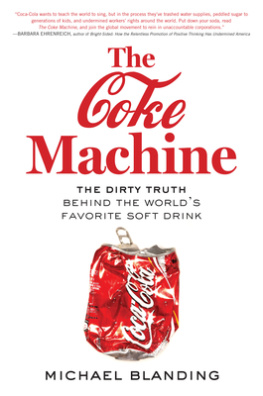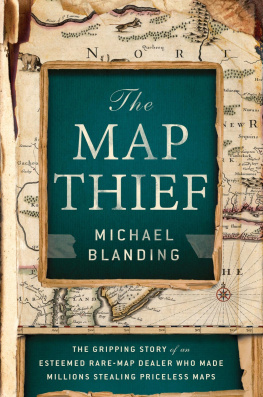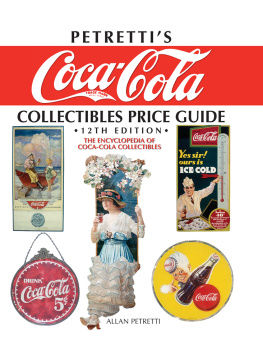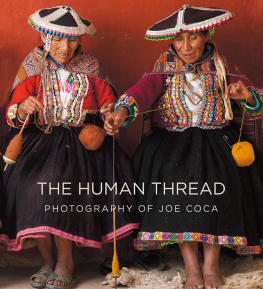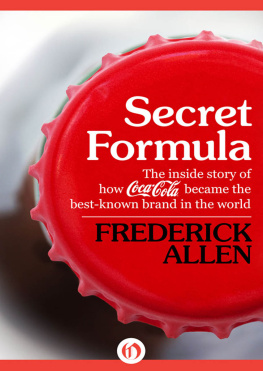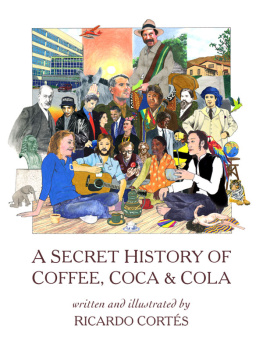Acknowledgments
Obviously, to write a book of this scope, I have a great many people to thank. First and foremost, I want to thank my agent, Elisabeth Weed, who believed in this book from the beginning, encouraged me through two years of proposal revisions and pitch meetings before it had become a reality, and then through another two years of writing after it had. A huge thanks, as well, to my incredible editor, Rachel Holtzman, who was a calm in the storm throughout the writing and editing process, and offered just the right combination of prodding and trust to see me through multiple stages of rewriting, cutting, and framing the manuscript. Thanks, as well, to her assistant, Travers Johnson, and the excellent team at Avery for the behind-the-scenes work they did in making the book the best it could be.
Id also like to express a measure of debt to the authors who have previously tackled the rich subject of Coca-Cola, on whose work I drew from heavily (and in some cases, shamelessly) in order to tell various aspects of the history and current practices of the company. For the first chapters dealing with the history of the company, Mark Pendergrasts For God, Country, and Coca-Cola was enormously helpful, as was Secret Formula by Fred Allen. I was also helped immensely by the collections of documents that Pendergrast and Allen left at the rare book library at Emory University, as well as other collections there, from which most of the historical documents I relied on are drawn. For the later history of the company, I relied on Constance Hayss The Real Thing and Thomas Olivers The Real Coke, The Real Story. In the chapter detailing the fight to get soda out of schools, I was greatly assisted by Michele Simons Appetite for Profit (and by Simon herself, who freely shared information with me from the beginning stages of the manuscript). And on international affairs, I relied on Laura Jordans excellent thesis on Coke in Mexico, and on Nantoo Banerjees bookalso called The Real Thingto elucidate Cokes problems in India.
In addition to those written sources, Id like to acknowledge all of the patient time and effort granted to me by those struggling to keep Coke accountable, including: Ray Rogers, Lew Friedman, Terry Collingsworth, Dan Kovalik, Camilo Romero, Amit Srivastava, Jackie Domac, Ross Getman, Michael Jacobson, Stephen Gardner, Dick Daynard, Gigi Kellett, and Javier Correa and all of the other union leaders in Colombia. On the other side, Id like to thank the executives of Coca-Cola India, especially Kalyan Ranjan, who, quite unlike their counterparts in the United States or Mexico, granted me the access I asked for and shared with me their perspective; their openness and candor have made this a better book.
Id also like to acknowledge the Herculean efforts of my research assistants, David Mashburn, Tony DOvidio, Alexis Hauk, Hannah Martin, and Maddy Schricker, without whom I quite literally could not have written this book (especially David and Tony, who helped draft some early sections of Chapters 3 and 4); and the translators who helped me understand foreign perspectives along with foreign words, including Arup Chanda and Nandan Upadhyay in India; Paco Vasquez and Erin Araujo in Mexico; and my translator in Colombia, whose name I must unfortunately withhold for safety reasons. Many thanks to Laura Bravo Melguizo, who spent countless hours translating Spanish-language documents with me and correcting multiple facts and translations in the text. Id be remiss, as well, if I didnt give a shout-out to Ula Caf, whose strong coffee and friendly baristas sustained me through many long hours of writing.
Last but absolutely not least, I must thank my wife, Alexandra, who not only came up with the title for this book, but also suffered through interminable conversations about soft drinks and corporate accountability, working vacations in Atlanta and Chiapas, and babysitting two unruly toddlers during my long nights of writing and revising at the office. I cant thank you enough, sangsai, and only hope I can do the same for you with your next book.
Bibliography
Aaseng, Nathan. The Unsung Heroes: Unheralded People Who Invented Famous Products. Minneapolis: Lerner, 1989.
Acuff, Daniel S., and Robert H. Reiher. Kidnapped: How Irresponsible Marketers Are Stealing the Minds of Your Children. Chicago: Dearborn, 2005.
Adams, Samuel Hopkins. The Great American Fraud: Articles on the Nostrum Evil and Quacks. New York: P. F. Collier & Son, 1906.
Alinsky, Saul. Rules for Radicals: A Pragmatic Primer for Realistic Radicals. New York: Vintage, 1989 (orig. pub. 1971).
Allen, Frederick. Secret Formula: How Brilliant Marketing and Relentless Salesmanship Made Coca-Cola the Best-Known Product in the World. New York: HarperBusiness, 1994.
American Can Company. Carbonated Beverages in the United States: Historical Review. Greenwich, CT: American Can Company, 1971.
Armstrong, David, and Elizabeth Metzger Armstrong. The Great American Medicine Show. New York: Prentice Hall, 1991.
Atkins, Douglas. The Culting of Brands: When Customers Become True Believers. New York: Portfolio, 2004.
Bakan, Joel. The Corporation: The Pathological Pursuit of Profit and Power. New York: Simon & Schuster, 2004.
Banerjee, Nantoo. The Real Thing: Cokes Bumpy Ride Through India. Kolkata, India: Frontpage, 2009.
Barber, Benjamin R. Consumed: How Markets Corrupt Children, Infantilize Adults, and Swallow Citizens Whole. New York: W. W. Norton, 2007.
Barlow, Maude. Blue Covenant: The Global Water Crisis and the Coming Battle for the Right to Water. New York: New Press, 2007.
Barnet, Richard J., and Ronald E. Muller. Global Reach: The Power of Multinational Corporations . New York: Simon & Schuster, 1974.
Beatty, Jack, ed. Colossus: How the Corporation Changed America. New York: Broadway Books, 2001.
Berns, Gregory. Satisfaction: The Science of Finding True Fulfillment. New York: Henry Holt, 2005.
Beyer, Chris H. Coca-Cola Girls: An Advertising Art History. Portland, OR: Collectors Press, 2000.
Bhagwati, Jagdish. In Defense of Globalization. New York: Oxford University Press, 2007 (orig. pub. 2004).
Bingham, A. Walker. The Snake Oil Syndrome: Patent Medicine Advertising. Hanover, MA: Christopher, 1994.
Brodsky, Alyn. Benjamin Rush: Patriot and Physician. New York: Truman Talley, 2004.
Brown, John Hull. Early American Beverages. Rutland, VT: C. E. Tuttle, 1966.
Brownell, Kelly D., and Katherine Battle Horgen. Food Fight: The Inside Story of the Food Industry, Americas Obesity Crisis, and What We Can Do About It. New York: McGraw-Hill, 2003.
Buckley, Christopher. Thank You for Smoking. New York: Random House, 1994.
Bullock, August. The Secret Sales Pitch: An Overview of Subliminal Advertising. San Jose, CA: Norwich, 2004.
Calhoun, Mary. Medicine Show: Conning People and Making Them Like It. New York: Harper & Row, 1976.
Campbell, William T. Big Beverage. Garden City, NY: Doubleday, 1952.
Campos, Paul. The Obesity Myth: Why Americas Obsession with Weight Is Hazardous to Your Health. New York: Gotham Books, 2004.
Candler, Charles Howard. Asa Griggs Candler. Atlanta: Emory University Press, 1950.
Capparell, Stephanie. The Real Pepsi Challenge: The Inspirational Story of Breaking the Color Barrier in American Business. New York: Wall Street Journal Books, 2007.
Cardello, Hank. Stuffed: An Insiders Look at Whos (Really) Making America Fat

